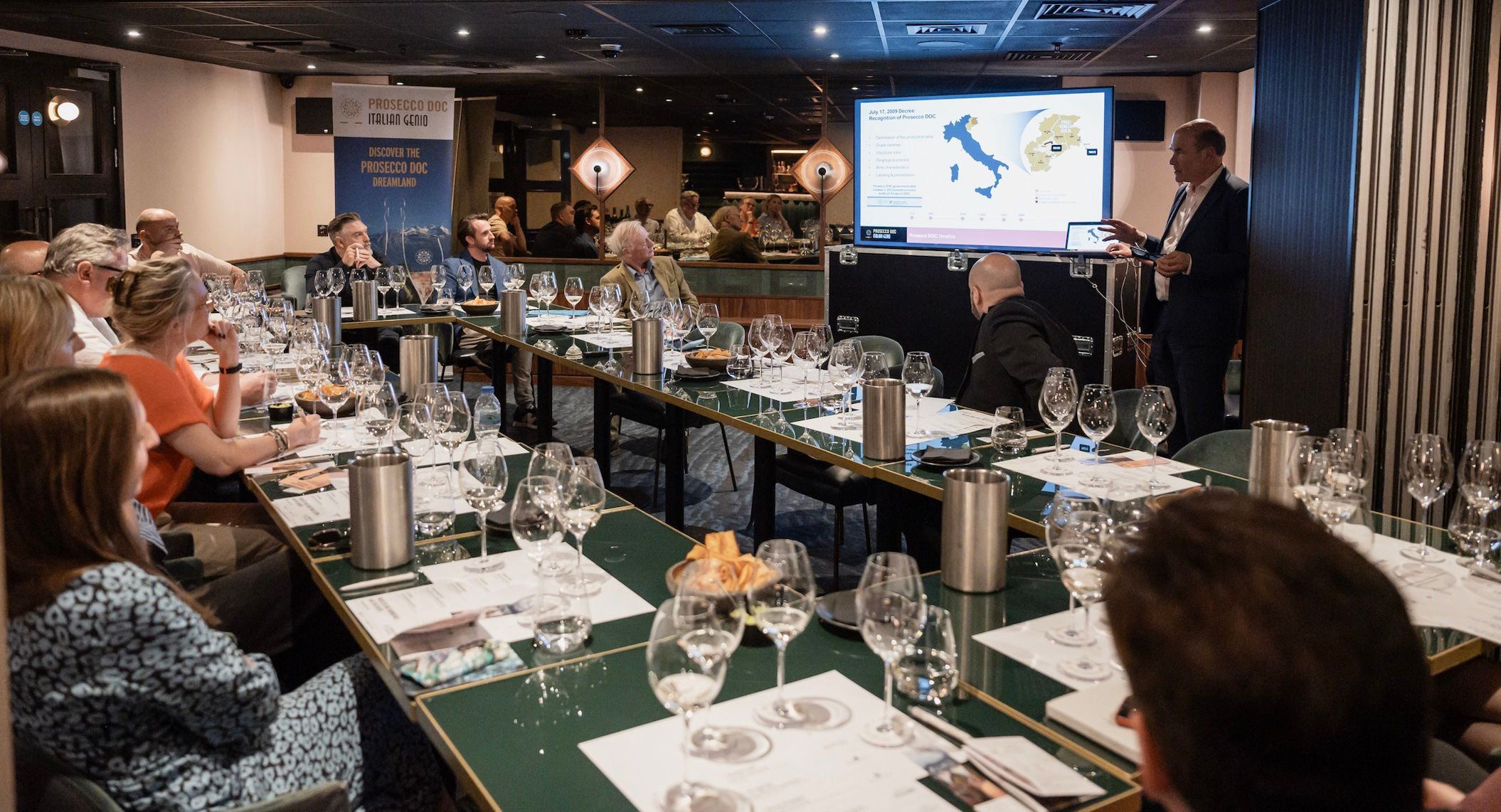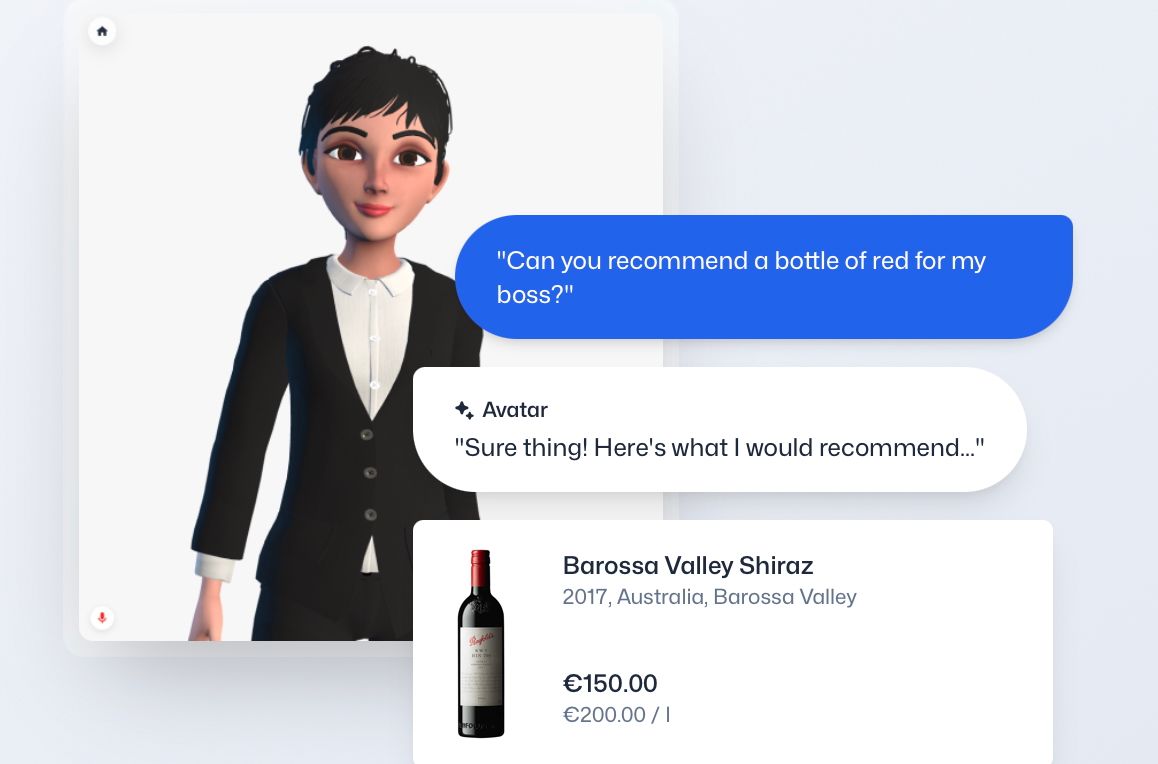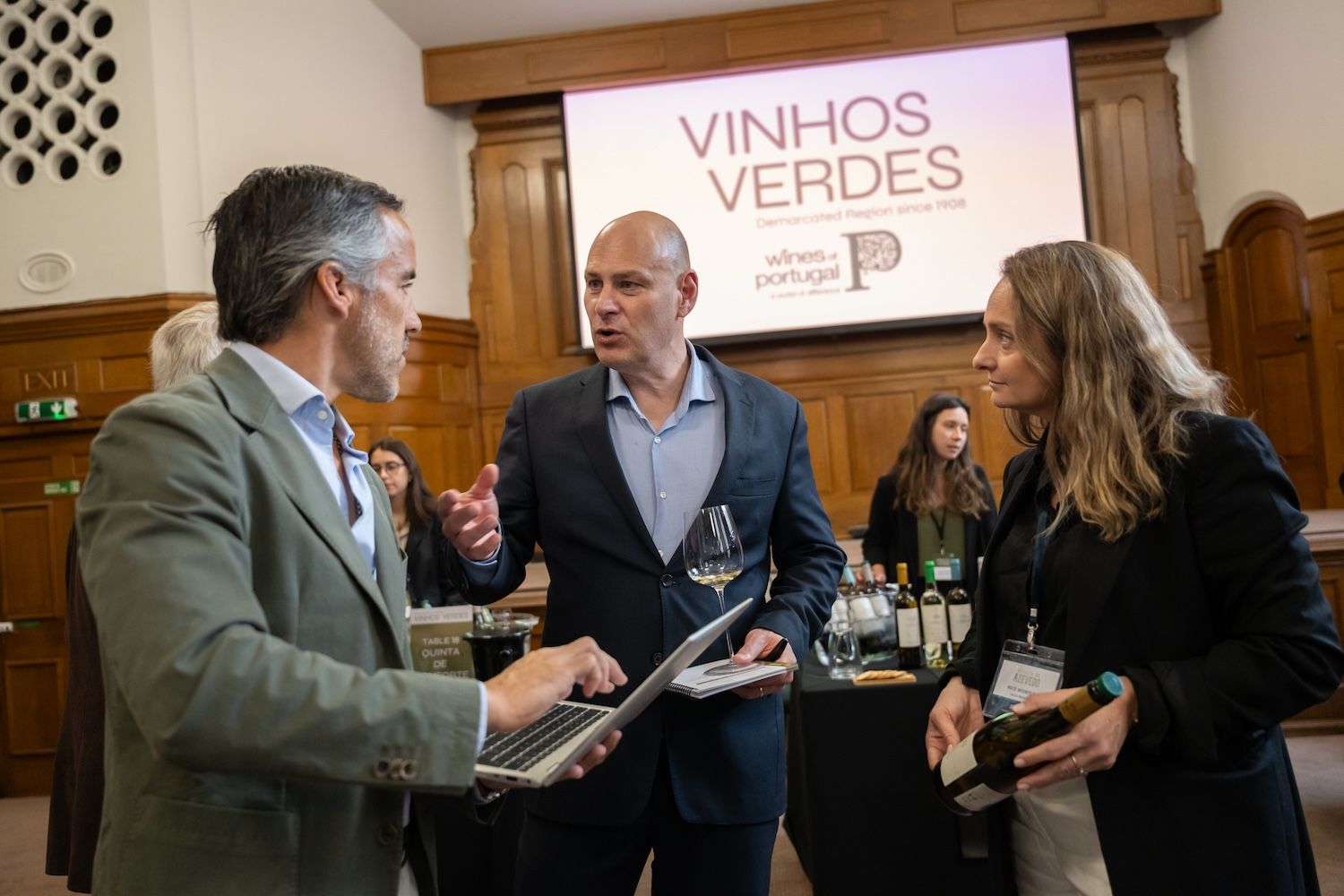How do you take your coffee? Rich and dark or light and mellow? Drip fed or powered by an espresso machine? Roasted or unroasted? All these questions are answered by Piqant’s personalised coffee matching service.
Tell us about the concept of Piqant and what you are trying to do?
Piqant is an online marketplace that connects independent coffee roasters to coffee lovers. Our team knows all components that play a significant role in shaping flavour, and use this knowledge to hand-pick only ethically sourced coffees from independent roasters in the UK. We rely on AI algorithms to perfectly match your taste with our selection.
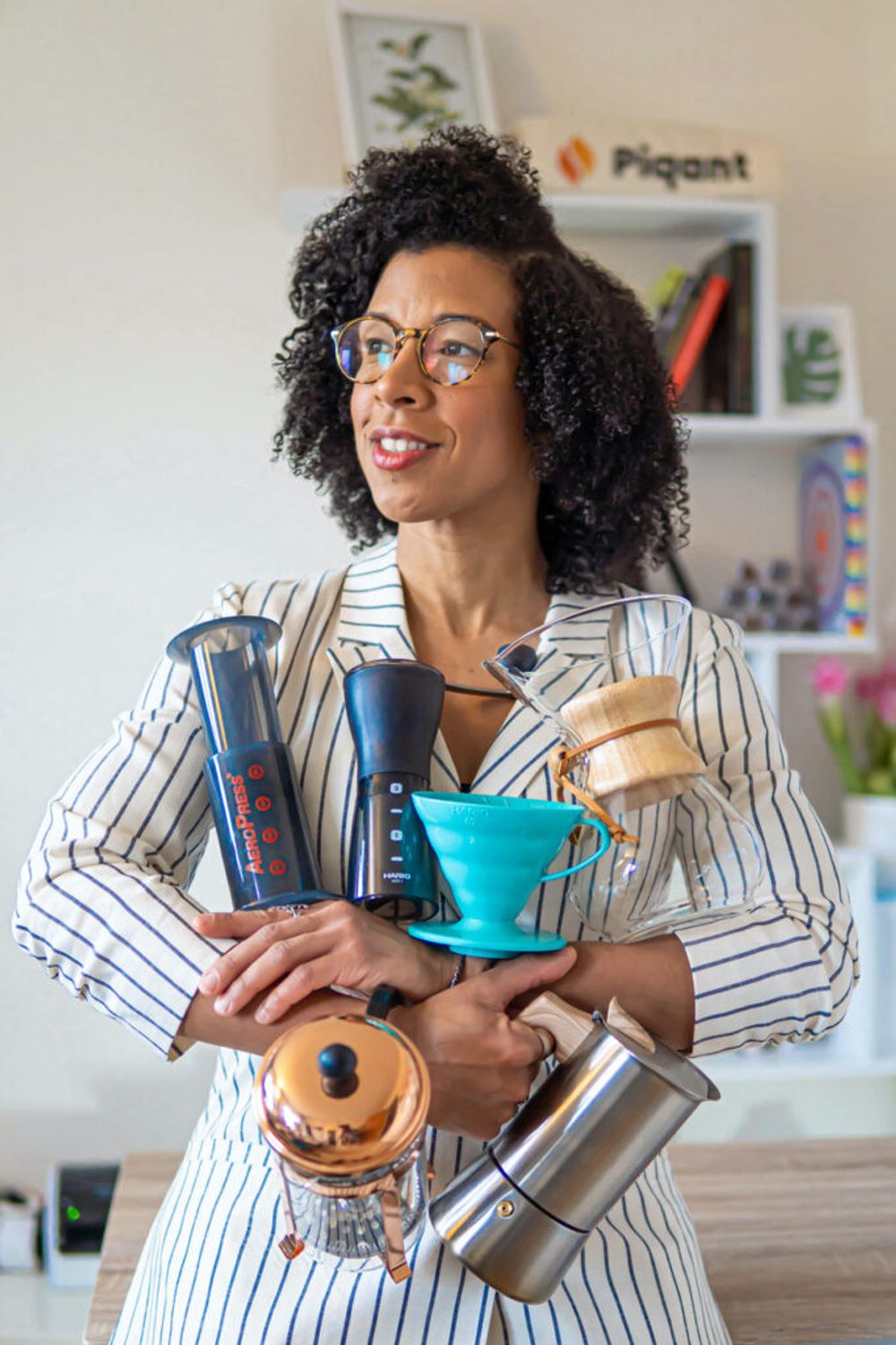
Rosanna Nibbs Senise says she hopes Piqant can bring ethically sourced coffee to a wider audience using AI technology
Where did the idea come from?
The original idea was to open a coffee shop featuring different coffees but the pandemic stroke out. During the first lockdown, we were trying different independent roasters around the UK, and that’s when the idea of Piqant arose – a place where everyone can find different independent coffee roasters and try coffee from places they wouldn’t have been able to.
There are similar taste profiling businesses in wine – particularly for wine clubs – where did you take your inspiration and influence from?
The wine industry definitely has similitudes associated with coffee. As part of our research, we looked into wine, craft beer, fashion, and others, in order to come up with the best possible algorithms. And it’s an ongoing process, we continue to do research and improve the quiz matches.
Did you look at any wine profile tasting clubs?
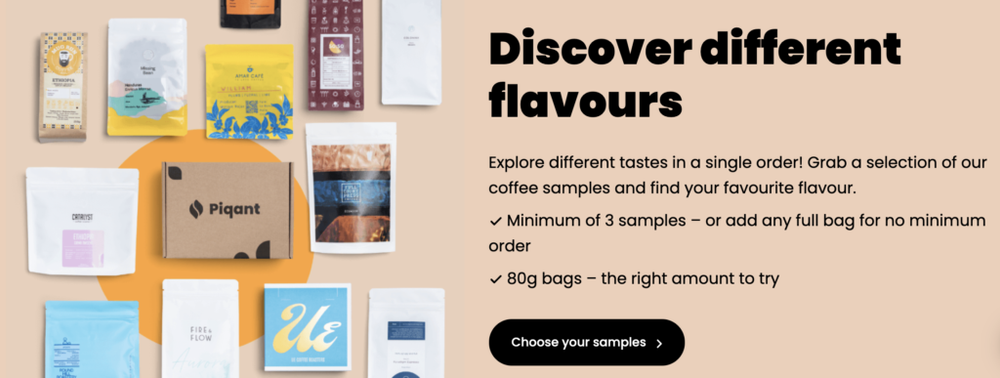
Our research took us into tasting clubs and product quizzes in general, choosing your perfect coffee can be like choosing your favourite wine, different grape varieties produce different wine and the same is true for coffee varieties, amongst many other factors.
How do you work out what taste profile questions to ask?
Our quiz has gone through many iterations, in the end, we deemed important to focus on the main things that affect flavour in the cup (the tasting notes, roasting profile, and brew method), and present it in a way that’s easy to follow for new users and has enough granularity for the most advanced users.
What sort of questions do you ask and what do the answers tell you about the coffee they like and why do you ask how do people make their coffee – how does that determine what coffee to buy?
The matching system allows the users to understand their taste in terms of coffee and to perfectly link their taste with their brewing method. Every brewing method brings different results to the cup, that’s why it is important to select the coffee that matches your brewing method. Our prediction algorithm feeds off data, the greater the pool of coffees, the more precise it becomes. The objective is to provide them with the best coffee experience exalting the best of every single coffee.
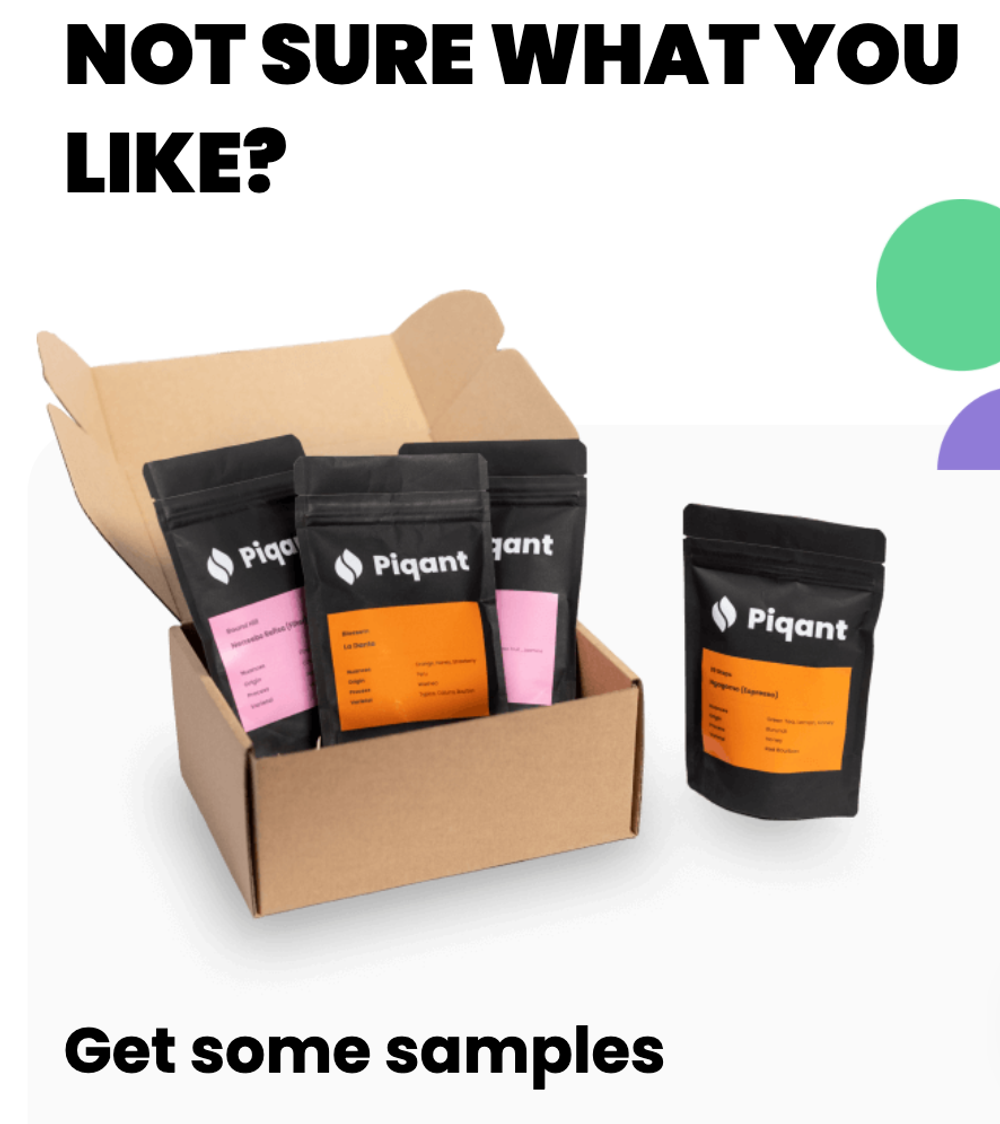
Piqant’s website takes people through a series of steps to determine the kind of coffees they will like
What are the key determining factors when it comes to how coffee is made that will dictate what taste profiles will like a certain kind of coffee?
Several factors affect flavour in the cup: varietal (the type of crop), processing (how the bean is extracted from the cherry), altitude (how high was the coffee tree), origin country, roasting profile, amongst others.
We map these coffee bean characteristics to the flavours users would expect. For instance, washed processed coffee from Brazil might be nutty and chocolatey, sort of the traditional coffee flavour, while a natural processed coffee from Ethiopia might introduce a little funk in the cup. Lighter roasts maintain more of the flavours from the processing and region than darker roasts and have a lighter body, so might be a better match for someone who likes tea. Darker roasts are more on the bittersweet, brown aromatics, chocolatey, side. After making your picks on the quiz, we’re able to figure out the flavour you expect in your cup.
Our website behaves like an app and we have an in-house software development team making sure our website delivers a great experience on any mobile device, tablet or desktop computer.
How does the purchasing and subscription model work?
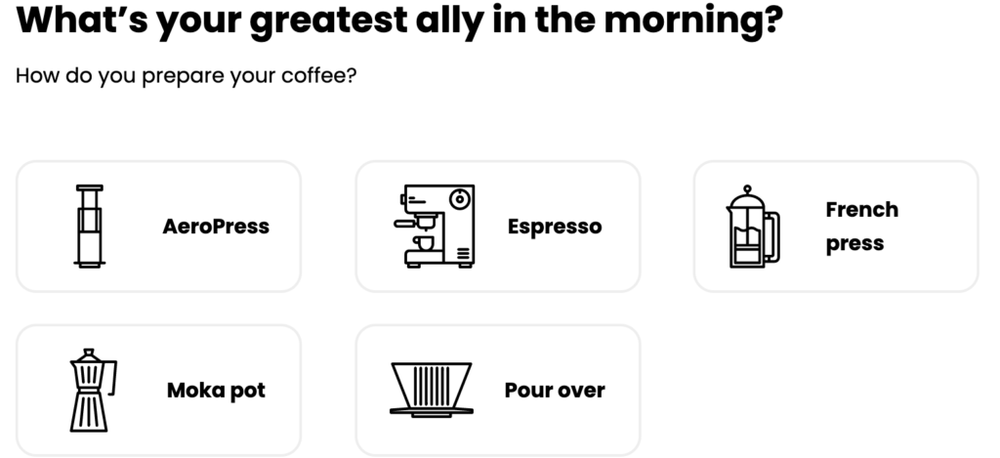
How you make your coffee will determine the choice of coffee that Piquant recommends you
Customers can buy one-offs by browsing through our catalogue. They can buy samples of coffees they’d like to try. They can then subscribe to a coffee by choosing it from our catalogue.
We recommend they take our quiz to get a match to their taste, and subscribe to their tasting profile, where we’d be sending them a different coffee every time that matches their taste.
You have a range of 60 coffees – why so many and what do you hope to be able to offer with them all?
Our matching algorithm feeds off data, the greater the pool of coffees, the more precise it becomes. Coffee has a very wide range of flavours, to offer the best experience in the coffee world, we need to have products covering the whole spectrum. Over 60 might sound like much, but this list has actually been carefully curated, we’re doubling the pool by next month, and each of them has our seal of approval.
Where do you source your coffee from and how do you know they are all ethically sourced?
We source our coffee from independent coffee roasters around the UK, accurately selected based on their quality and ethics. Firstly, we interview each of them in order to collect information about themselves and each of their coffee selection. It’s important to us that every coffee is traceable and fairly traded.
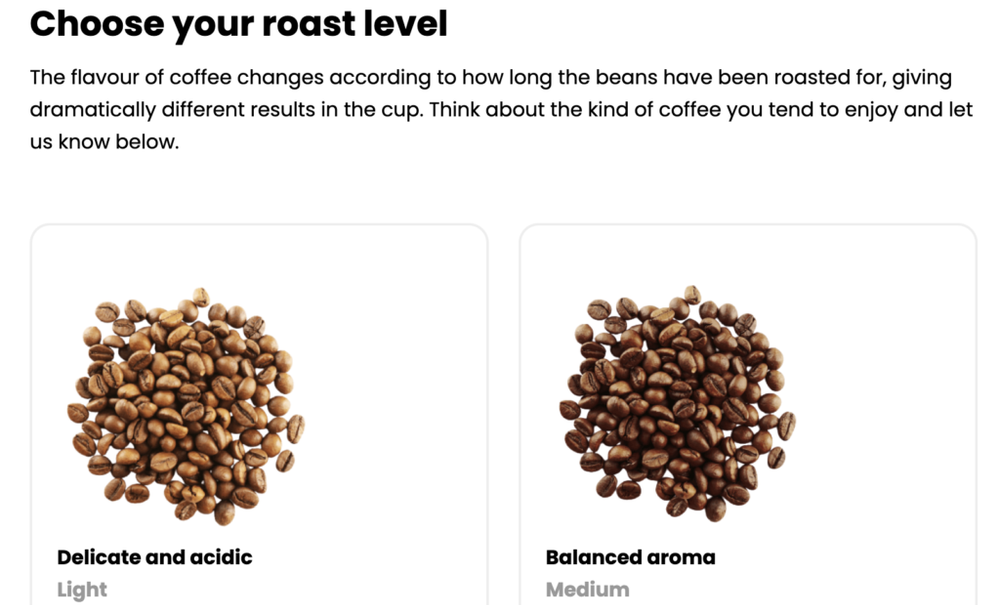
What are your plans for how the business can grow?
Many people aren’t happy with the coffee they’re having, so far, word of mouth has been big for us, users like the ease of use of the app, the quiz matches, the coffee, and they tell their friends. We try to dazzle users with a great online experience, customer service, predictable deliveries and great coffee. It’s been working so far.
We’re also onboarding 1-2 roasters into the platform every month, which, in terms, makes the matching system better and better.
What sort of customers do you find use Piqant?
Our customers are a mix of people who would like to join-in on the third wave of coffee but don’t necessarily know how to start, and people who don’t have a nearby coffee roaster and would like to enjoy great speciality coffee, and the more advanced coffee enthusiasts who appreciate having all details of the coffee so they can fully customise their picks.
Are there ways for other businesses to hook up with you – like would you consider having a wine taste profile aspect to your app?
At the moment our main focus is on the coffee industry, however, who knows what the future will bring.
- If you would like to find out more about Piqant click here.

